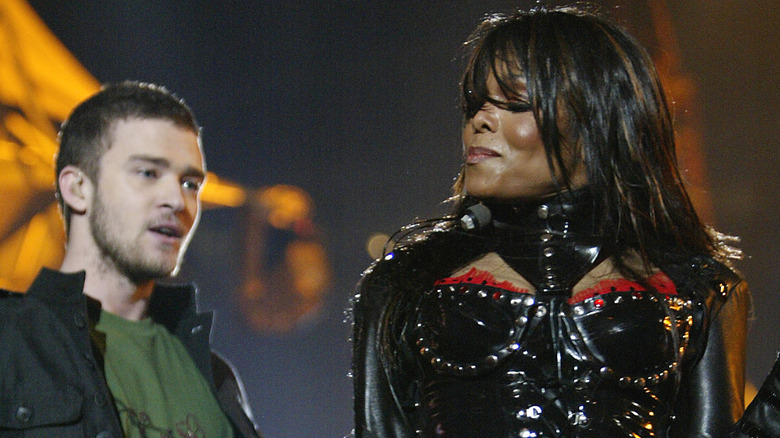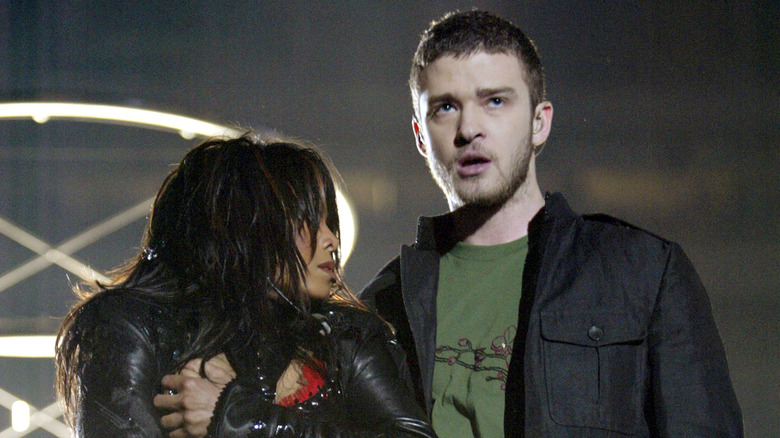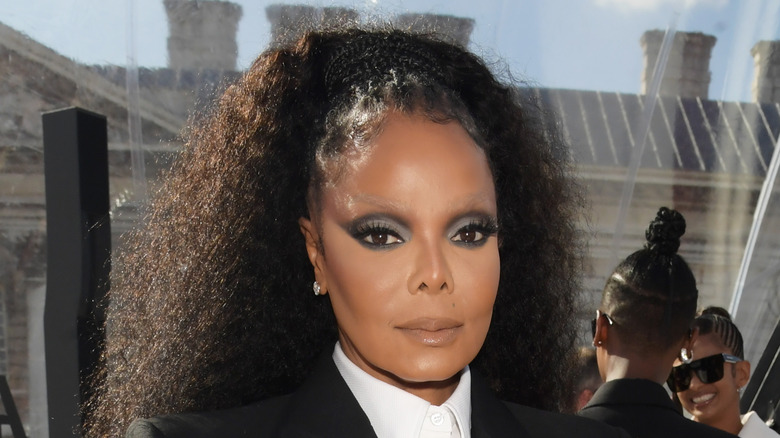How Janet Jackson And Justin Timberlake's Super Bowl Halftime Show Led To A Federal Investigation
The Super Bowl XXXVIII halftime show in February 2004, headlined by Janet Jackson with guest Justin Timberlake, took an unexpected turn when their performance of "Rock Your Body" concluded with the now infamous wardrobe malfunction, revealing Jackson's breast adorned with a nipple shield. This incident, later coined "Nipplegate," sparked immediate outrage and condemnation from viewers, the media, and officials alike, leading to widespread backlash.
As if this were not enough, the halftime show also resulted in a federal investigation. The Federal Communications Commission launched an investigation into the incident after receiving over 500,000 complaints from outraged citizens. In a February 3, 2004 statement, former FCC chairman Michael K. Powell expressed his disgust over what happened.
He declared, "I am outraged at what I saw during the halftime show of the Super Bowl. Like millions of Americans, my family and I gathered around the television for a celebration. Instead, that celebration was tainted by a classless, crass, and deplorable stunt," per The Washington Post. Despite the intense backlash, they had a hard time enforcing penalties.
The FCC ordered thousands in fines
Despite Janet Jackson and Justin Timberlake maintaining that the exposure was a mistake, the Federal Communications Commission decided to officially delve into the shocking moment, which notably occurred on live television. Then-FCC chairman Michael K. Powell ruled that the probe would be a quick one, and in September 2004, the agency imposed fines on CBS totaling a whopping, and unprecedented, $550,000.
The commission determined that Jackson's partial nudity during a sporting event breached the standards of broadcast indecency, especially considering the context of the performance. Each of the 20 CBS-owned stations was fined $27,500. However, the network fought back, and a years-long battle ensued. CBS ultimately paid the fines and offered their own public apology for the incident, but they still appealed the penalties.
The case then went before the United States Court of Appeals for the Third Circuit, which eventually ruled in 2008 that the fine was unjust. One reason offered was that Jackson and Timberlake were viewed as independent contractors hired to perform at the now-infamous halftime show. The FCC continued trying to reinforce the penalties, however, and in 2011 the Third Circuit Court of Appeal once again ruled in favor of CBS.
Jackson's career took years to recover
Janet Jackson and Justin Timberlake's careers seemed to go in two directions after the 2004 Super Bowl. Of all of Timberlake's blunders, this one easily stands above the rest. And yet, the "Cry Me a River" hit-maker won two Grammy awards that same year, while Jackson was banned from performing at the show. Her March 2004 album, "Damita Jo," was also one of her worst-selling releases, as backlash from the halftime performance remained fresh.
In 2006, Jackson appeared on "The Oprah Winfrey Show," where she expressed her anger that she was the focal point of the negativity. Timberlake was ultimately welcomed back to the Super Bowl halftime show in 2018. However, in a now-deleted 2021 Instagram post, Timberlake offered Jackson an apology for seemingly allowing her to take on the bulk of the fallout.
"I specifically want to apologize to Britney Spears and Janet Jackson both individually because I care for and respect these women, and I know I failed," Timberlake wrote (via People). While the iconic singer has since bounced back and been able to thrive in her career, the infamous moment remains a widely revisited and contentious moment in pop culture history.


